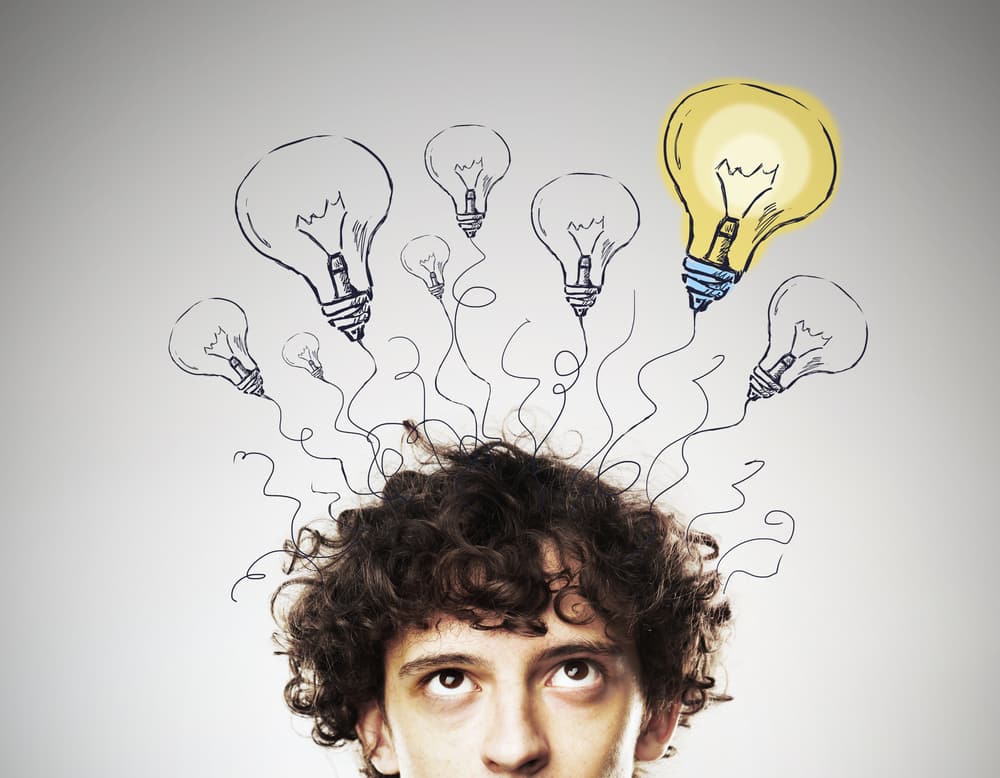Contents:
- Medical Video: Understanding Bipolar Depression
- How is creativity related to bipolar disorder?
- Bipolar disorder can cause creativity as one of the "side effects"
- Creativity and job demands increase the risk of alcohol and drug abuse
- What causes bipolar disorder?
Medical Video: Understanding Bipolar Depression
Creative thinking is needed in almost every daily activity. In fact, many studies in the medical field justify that creative thinking is very beneficial for one's mental and physical health. Starting from reducing stress and anxiety to improve fitness. Even so, creative people like artists, musicians, poets, writers, and jobs art others have a greater chance of experiencing bipolar disorder. Why is that?
How is creativity related to bipolar disorder?
Various studies have shown that creativity and mood disorders such as bipolar disorder may be related to each other. A number of other studies also reveal that people who work in the creative industry are more prone to bipolar disorder. Just say painter Vincent Van Gogh, author Virginia Woolf, Tennessee Williams playwright, and film star Carrie Fisher and Ben Stiller who are known to have the disease.
It is not yet known exactly what causes it, but researchers argue that working in the creative field makes a person must continue to spawn bright, expressive, and even unreasonable ideas quickly so that his work can continue to be in demand by the public. It is this pressure of relentless work that is strongly suspected of having contributed significantly to the development of someone's bipolar disorder over time.
It is also unclear which one comes first, whether creative thinking triggers bipolar disorder or bipolar disorder that can cause creativity. Some experts argue that creativity can be one of the "side effects" that appear in bipolar phases.
Bipolar disorder can cause creativity as one of the "side effects"
Dr. Terence Ketter, founder and head of Bipolar Disorder Clinic at Stanford University, explained that people who are very creative have an increased risk of mood disorders, but at the same time, someone who has a mood disorder is also reported to have higher creativity.
Because when entering the manic phase, people with bipolar disorder become more excited, excited, active, and more aroused by the work of the brain only with normal daily interactions with the world, such as watching movies, reading books, or looking at the environment. This is where creative inspiration might come. In this phase of mania they also have an extraordinarily strong urge to pursue goals. While when it falls into a depressive phase, it is possible that some people with bipolar disorder can feel more inspired and inspired to work.
Between the phases of 'mania' and 'depression', someone who has bipolar disorder can experience a 'psychosis' phase that makes him feel alien to the world around him and hallucinate - or have unreasonable ideas.
Their ability to experience these various emotions provides great energy that drives them to realize creative thinking. So, the greater the stimulation, activation, and encouragement, the combination can produce creative ideas.
Creativity and job demands increase the risk of alcohol and drug abuse
Inevitably, work-related stress can increase a person's risk for developing drinking habits and the use of illegal drugs. Stimulants in both of them can eventually disrupt the nervous system and produce chemicals in the brain. The imbalance of serotonin and norepinephrine in the brain is known to be one of the risk factors for the development of bipolar disorder.
On the other hand, bipolar people enjoy the creativity produced by their disorder. Because of this bonus, they may be reluctant to undergo treatment and therapy that can worsen their condition in the long run.
When episodes of mania recur, they cannot think rationally and are often involved in dangerous actions, such as abuse, harassment, suicide, or the use of illegal drugs.
What causes bipolar disorder?
Bipolar disorder is an extreme mood change that makes a person feel back and forth feeling happy and sad. These mood changes can occur drastically, and often appear not in accordance with the conditions that are happening.
Until now researchers have not found out exactly what causes bipolar disorder, but they believe that genetic factors play a more important role in causing bipolar disorder than environmental factors.
Someone who has bipolar disorder has a 15-30% risk of suffering from bipolar disorder. If both parents suffer from bipolar disorder, it's likely 50–75% of their children will suffer from bipolar disorder as well.













